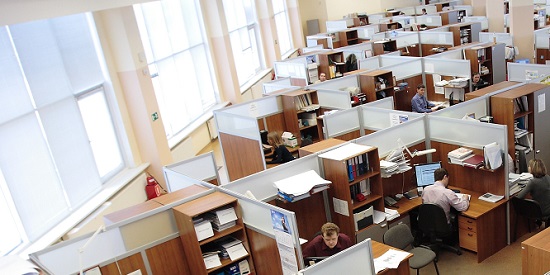Tips to help managers support staff transition from the virtual to the physical workplace
Media release
With the Victorian Government easing restrictions to allow more workers back into the office, a Deakin University organisational psychology expert says it is more important than ever that managers and team leaders focus on staff wellbeing as they transition from the virtual to the physical work place.
Dr Simon Albrecht, a psychologist with Deakin’s School of Psychology, said that over the past pandemic year we have witnessed and experienced profound changes to the world of work as we know it.
"Never before have so many organisations needed to adapt so quickly and change so fundamentally," Dr Albrecht said.
"Now that we are moving to a new COVID-normal the workplace is unlikely to be the same as before with some of the new processes and ways of operating that were tried and tested during COVID no doubt becoming an ongoing part of how organisations operate."
While it is too early to track all of the psychological implications of COVID on worker health and wellbeing, Dr Albrecht said research has shown that nearly 40 per cent of employees reported high or very high psychological distress during the pandemic.
"Although, many employees have adapted well, research has also shown that on average, life satisfaction and wellbeing decreased across the early stages of the pandemic. Such research evidence supports many anecdotal accounts of COVID having a negative psychological impact on worker wellbeing," he said.
So what can leaders and managers do to help and support workers returning to work? Dr Albrecht said organisational psychology research showed that managers and leaders most likely to be successful at transitioning people back to on-site work will be supportive, collaborative, respectful, and trustworthy.
“Such leaders and managers will communicate openly and consistently act with integrity. They will be sensitive to the needs of different individuals, will provide helpful resources, will manage the flow of work demands for individuals and teams, will help employees focus, will not think they have to make all the decisions, and will share and celebrate individual and team achievement,” he said.
Dr Albrecht provides the following tips for leaders and managers to help returning workers quickly regain their motivation and performance, while also looking out for worker wellbeing.
'Check in' and listen to ensure individuals feel supported and cared about
It is important to regularly 'check in' with employees on the ups, downs and challenges experienced while working off site as well as any particular support they can provide to help with the transition back to on-campus work. A simple 'ask, listen, check, acknowledge, offer' process can help guide such check-ins.
Ensure staff feel physically and psychologically safe
We are still in COVID, so it is very important to help all employees understand that the health and wellbeing of every individual and team member is of paramount importance. Provide assurances that COVID safe practices and procedures are in place and will be strictly adhered to. Individual behaviour and expectations about how people interact informally and formally will need to be made unambiguously clear. Managers and leaders need to demonstrate an unwavering commitment to safety.
It is vitally important to help employees feel psychologically safe. Actively encourage employees to raise issues and concerns and show them that no-one will be ignored or suffer any negative consequences as a result.
Create a feeling of connection to people, the work, the team and the purpose
Actively encourage and facilitate informal and formal catch-ups among staff members. Many will have been interacting, if at all, only via Zoom and will relish the opportunity to re-connect socially with friends and colleagues. Team meetings, coffee catch-ups, and conversations need to be encouraged to occur.
An overly overbearing and task focused re-entry into the work routine will not be conducive to team morale nor sustained productivity. Cut some slack. Workers will also derive a sense of purpose and meaning from their work if they can see how their work makes a difference. Look for opportunities to link the team’s activities to the organisation’s 'big picture' strategies and goals and encourage them to identify the way their work contributes positively to the organisation’s achievements.
Help staff create a feeling of being in control (and not 'out of control')
Do the opposite of micro-managing. Instead, collaboratively define what work arrangements might work best, what work priorities might best be addressed, and what processes might support the achievement of those priorities. Staff will be looking for a balance between having defined and clear roles on the one hand and feeling empowered to exercise their skills and their experience on the other hand.
Fostering feelings of control by encouraging initiative and new ideas, consulting with those who are affected by decisions and change and seeking input will also help workers redress any insecurities and anxieties they might bring with returning to the physical workplace.
Build an individual and collective sense of 'can do'
Help workers feel competent, effective and successful in their role by providing them with control and help to manage demands, clarity about what they are doing, role expectations, and when targets need to be achieved, and help identify roadblocks and impediments to successful goal achievement. Take worker development seriously and help collaboratively define opportunities for staff to develop and learn new skills.
Share this story

